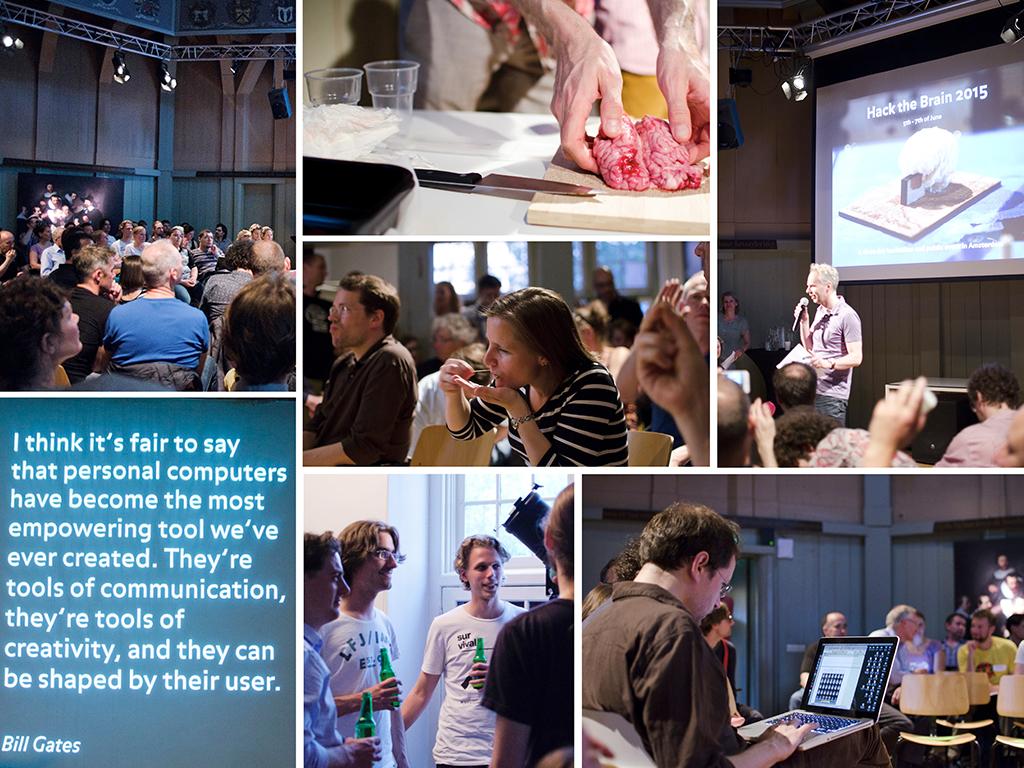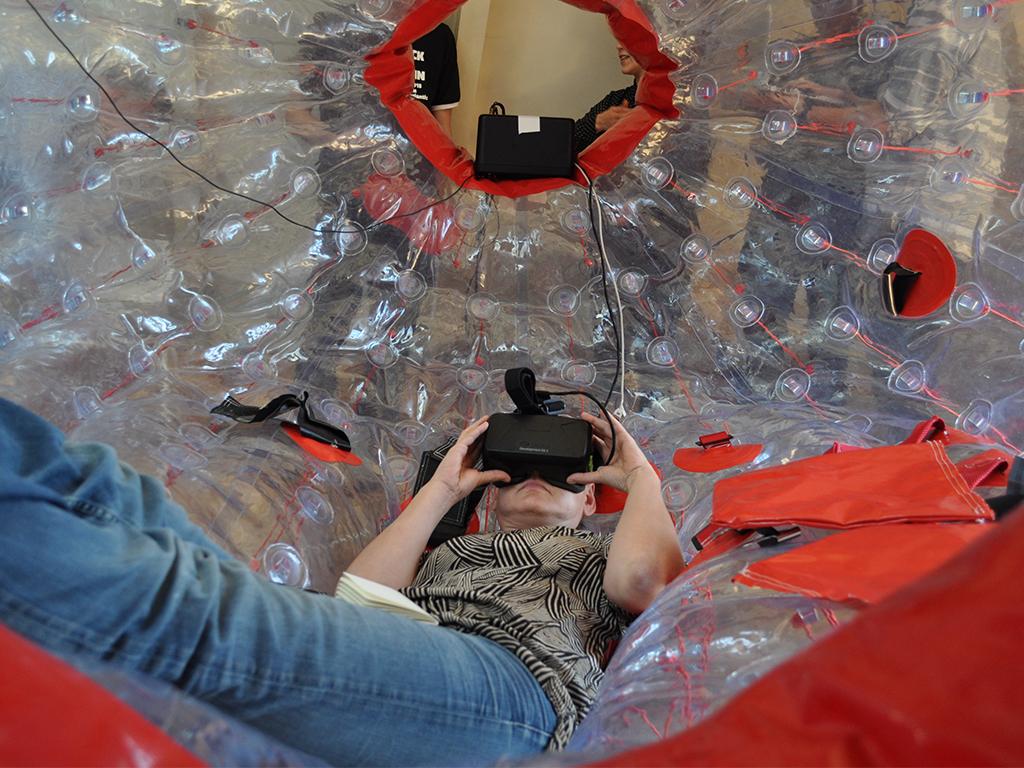On June 5th, 2015, Waag and Total Active Media kicked off the second edition of Hack the Brain. This year's theme was “The Brain and Education.” Over three days, six teams of software developers, artists, and neuroscientists came up with seven exciting new educational applications.
Participants had to move from idea to implementation in just 72 hours—and without a prototype they were not allowed to pitch at the end of the hackathon. So, the goal was really to develop ideas into useful applications. That all teams managed to demonstrate a working prototype in this short amount of time is really a small miracle.
The best brainhack
The winning team came up with “BrainED,” a game in which children play with the elasticity of their own attention spans. It goes like this: as players concentrate, they work to “build” a visualization of a colorful skyline. If their attention (or one of the players' attention) starts to wander, the towers begin collapsing. Player concentration is measured with a “Muse,” a headband that measures the brain activity by means of alpha waves.
Research has (repeatedly) demonstrated that children perform better when they know that their brain is flexible. In other words: if they understand that they can improve their brain through concentration and practice, this ultimately can affect their results. This is the difference between a “fixed” and “flexible” mindset (as the psychologists call it).
Jury chairman, Jason Farquhar (from the Donders Institute for Brain, Cognition, and Behaviour), was especially excited about the possibility for actual application of BrainED. “This can really help kids,” he said.
A walk through your mind
The second prize went to Dimensions, a prototype that can best be described as a “brain experience.” The central question for this team of neuroscientists and artists was “how do you feel in your own mind?” Participants sat in giant plastic, inflatable structure, put an Occulus Rift, and received visual and auditory feedback on their own brain activity.
Hack the Brain goes international
This past weekend was a celebration of brainhacking not only in Amsterdam, but also in Montreal. Saturday, a brain-hacker from Canada managed to make a trans-Atlantic connection with another brain-hacker in the Waag.
The connection allowed the Canadian to move the hand of the hacker in Amsterdam using signals from his brain! The next edition of Hack the Brain takes place in March 2016 in London.

